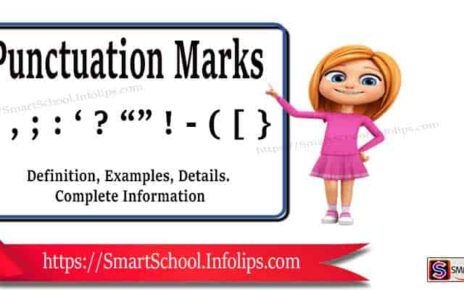Modal Auxiliaries Examples and Definition : Modal Verbs
Modal verbs are a category of auxiliary verbs that express a speaker’s attitude towards the action or state expressed by the main verb in a sentence.
They convey various degrees of necessity, possibility, permission, ability, and obligation. Here are some common modal verbs along with example sentences showcasing their different functions:
Modal Auxiliaries : Words
1. Can:
- Ability: She can speak French fluently.
- Permission: Can I borrow your pen?
- Possibility: It can rain later this evening.
- Offer: Can I help you with your homework?Request: Can you pass the salt, please?
2. Could:
- Past ability: When I was younger, I could run faster.
- Polite request: Could you please lower your voice?
- Suggestion: You could try calling him again later.
- Conditional possibility: If he studied harder, he could pass the exam.
3. May:
- Permission: You may leave the room now.
- Possibility: It may snow tomorrow.
- Polite request: May I ask you a question?
- Probability: She may be at home by now.
4. Might:

- Possibility: I might change the world soon.
- Permission: You might use my laptop if you need to.
- Suggestion: You might want to consider taking the bus instead of driving.
- Polite request: Might I borrow your pen for a moment?
5. Must:
- Obligation: You must wear a seatbelt in the car.
- Strong recommendation: You must try the local cuisine while you’re here.
- Deduction: The roads are wet; it must have rained recently.
- Prohibition: You must not smoke in this area.
6. Shall:
- Offers: Shall I open the window for some fresh air?
- Suggestions: Shall we go for a walk in the park?
- Future action: I shall visit my grandparents next weekend.
- Formal inquiries: Shall we proceed with the meeting?
7. Should:
- Advice: You should get plenty of rest before the exam.
- Expectation: The bus should arrive in about ten minutes.
- Obligation: Students should attend all classes.
- Necessity: You should wear a helmet when riding a bike.
8. Ought to:
- Moral obligation: You ought to help those in need.
- Advice: You ought to study harder if you want to improve your grades.
- Expected outcome: She ought to pass the test with all the effort she put in.
9. Will:
- Future certainty: I will meet you at the café at 3 o’clock.
- Promise: I will always support you, no matter what.
- Instant decision: I’ll have the salad, please.
- Habitual action: She will often go for a run in the morning.
10. Would:
- Polite request: Would you mind closing the window?
- Hypothetical situation: If I were you, I would apologize.
- Polite offer: I would be happy to help you with your project.
- Preference: I would rather stay home tonight.
11. Must not:
- Prohibition: You must not smoke in this area.
- Strong advice against: You must not underestimate the importance of this task.
- Necessity to avoid: You must not forget to submit your assignment by the deadline.
12. Need to:
- Requirement: You need to submit your application before the deadline.
- Necessity: I need to buy groceries on my way home.
- Lack of necessity: He doesn’t need to attend the meeting; it’s optional for him.
13. Have to:
- Obligation: I have to finish this report by tomorrow.
- Compulsion: They have to wear a uniform to school every day.
- Lack of choice: She has to take the bus because her car is in the shop.
14. Ought not to:
- Moral obligation: You ought not to cheat on exams.
- Strong advice against: You ought not to waste your time on trivial matters.
- Recommendation: We ought not to postpone the meeting any further.
15. Do not have to:
- Lack of obligation: You do not have to attend the party if you don’t want to.
- Absence of necessity: We do not have to rush; we have plenty of time.
- Permission: You do not have to ask for permission to use the restroom.
16. Used to:
- Past habit: I used to play the piano when I was younger.
- Past state: This building used to be a school before it was converted into apartments.
- Familiarity: We used to go to the same gym before it closed down.
17. Would rather:
- Preference: I would rather stay in and watch a movie tonight.
- Alternative choice: She would rather walk than take the bus.
- Polite refusal: I would rather not discuss that topic right now.
18. Would rather not:
- Polite refusal: I would rather not attend the party; I’m not feeling well.
- Disinclination: He would rather not deal with the paperwork himself; he finds it tedious.
- Preference against: They would rather not eat at that restaurant again; they had a bad experience last time.
19. Would have to:
- Hypothetical obligation: If I won the lottery, I would have to consult a financial advisor.
- Conditional necessity: If you had missed the train, you would have to find an alternate route.
- Likely requirement: If he accepted the job offer, he would have to relocate.
20. Should not:
- Strong advice against: You should not procrastinate; start working on your assignment now.
- Moral obligation: We should not judge others based on superficial factors.
- Prohibition: You should not exceed the speed limit while driving.
So these are some words are given here for Modal Auxiliaries Examples.
Modal Auxiliaries Examples for practice :
- She may attend the meeting.
- Modal auxiliary: May
- Function: Permission
- They might join us for dinner.
- Modal auxiliary: Might
- Function: Possibility
- Will you help me with my project?
- Modal auxiliary: Will
- Function: Offer or willingness
- Should I call the doctor?
- Modal auxiliary: Should
- Function: Advice or suggestion
- Must I finish this by tomorrow?
- Modal auxiliary: Must
- Function: Obligation
- Can you speak French fluently?
- Modal auxiliary: Can
- Function: Ability
- Could you pass me the salt, please?
- Modal auxiliary: Could
- Function: Polite request
- May I use your computer?
- Modal auxiliary: May
- Function: Asking for permission
- Might I borrow your umbrella?
- Modal auxiliary: Might
- Function: Polite request or permission
- Would you like some tea?
- Modal auxiliary: Would
- Function: Offering or inviting
- Shall we go for a walk?
- Modal auxiliary: Shall
- Function: Making a suggestion or proposal
- Will it rain tomorrow?
- Modal auxiliary: Will
- Function: Prediction or future possibility
- Should we start the meeting now?
- Modal auxiliary: Should
- Function: Asking for opinion or agreement
- Must we attend the entire seminar?
- Modal auxiliary: Must
- Function: Requirement or necessity
- Can I leave early today?
- Modal auxiliary: Can
- Function: Seeking permission
- Could you please repeat that?
- Modal auxiliary: Could
- Function: Polite request for repetition
- May we come in?
- Modal auxiliary: May
- Function: Seeking permission
- Might I suggest an alternative approach?
- Modal auxiliary: Might
- Function: Polite suggestion
- Would you mind opening the window?
- Modal auxiliary: Would
- Function: Polite request or asking for permission
- Shall I book the tickets for the concert?
- Modal auxiliary: Shall
- Function: Offering to take responsibility or make a decision
Modal Auxiliaries Examples : Exercise #1:
1) She may attend the meeting.
2) They might join us for dinner.
3) Will you help me with my project?
4) Should I call the doctor?
5) Must I finish this by tomorrow?
6) Can you speak French fluently?
7) May I use your computer?
8) Might I borrow your umbrella?
9) Would you like some tea?
10) Shall we go for a walk?
11) Will it rain tomorrow?
12) Should we start the meeting now?
13) Must we attend the entire seminar?
14) Can I leave early today?
15) Could you please repeat that?
16) May we come in?
17) Might I suggest an alternative approach?
18) Would you mind opening the window?
19) Shall I book the tickets for the concert?
20) Could you pass me the salt, please?
Answers:
1) Modal auxiliary: May, Function: Permission
2) Modal auxiliary: Might, Function: Possibility
3) Modal auxiliary: Will, Function: Offer or willingness
4) Modal auxiliary: Should, Function: Advice or suggestion
5) Modal auxiliary: Must, Function: Obligation
6) Modal auxiliary: Can, Function: Ability
7) Modal auxiliary: May, Function: Asking for permission
8) Modal auxiliary: Might, Function: Polite request or permission
9) Modal auxiliary: Would, Function: Offering or inviting
10) Modal auxiliary: Shall, Function: Making a suggestion or proposal
11) Modal auxiliary: Will, Function: Prediction or future possibility
12) Modal auxiliary: Should, Function: Asking for opinion or agreement
13) Modal auxiliary: Must, Function: Requirement or necessity
14) Modal auxiliary: Can, Function: Seeking permission
15) Modal auxiliary: Could, Function: Polite request for repetition
16) Modal auxiliary: May, Function: Seeking permission
17) Modal auxiliary: Might, Function: Polite suggestion
18) Modal auxiliary: Would, Function: Polite request or asking for permission
19) Modal auxiliary: Shall, Function: Offering to take responsibility or make a decision
20) Modal auxiliary: Could, Function: Polite request.
Essay Topics List in Marathi, Hindi, and English:
Question Answer for All Standard
मराठी निबंध
हिंदी निबंध
English Essay
Other Essays:
➥ Essay on My School in English
➦ मेरा विद्यालय पर निबंध
➥ Essay on my favorite festival in Marathi – Ganapati
➦ Essay on tree in Marathi
➥ माझी शाळा निबंध मराठी
➦ My Favourite Animal Essay In Marathi (Dog)
➥ जर मी ढग असतो तर :
इतर लिंक्स :
➥ मराठी रंग :
➦ विशेषण व विशेषणाचे प्रकार
➥ सर्वनामाचे प्रकार
➦ Modal Auxiliary
➥ Types of Figure of speech


